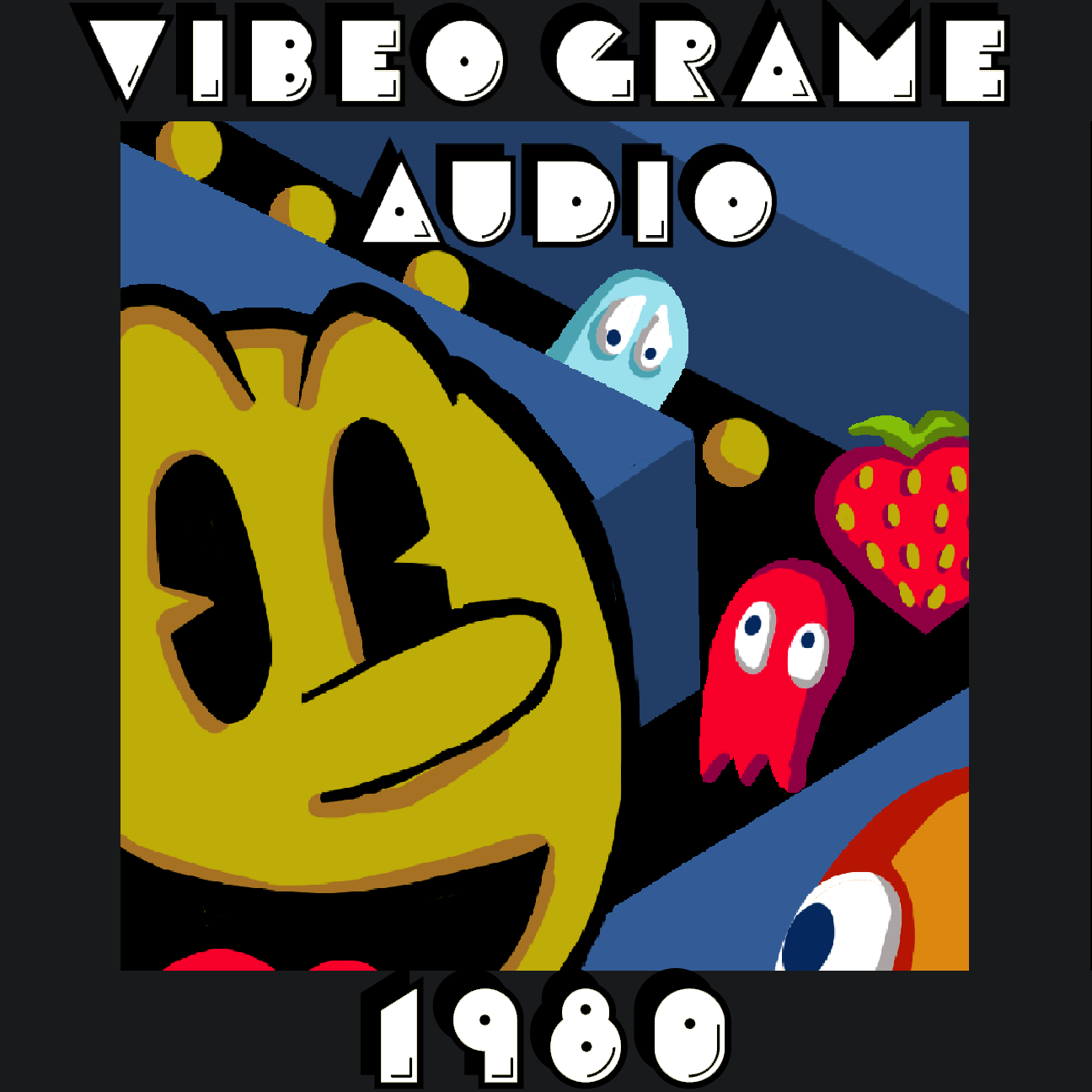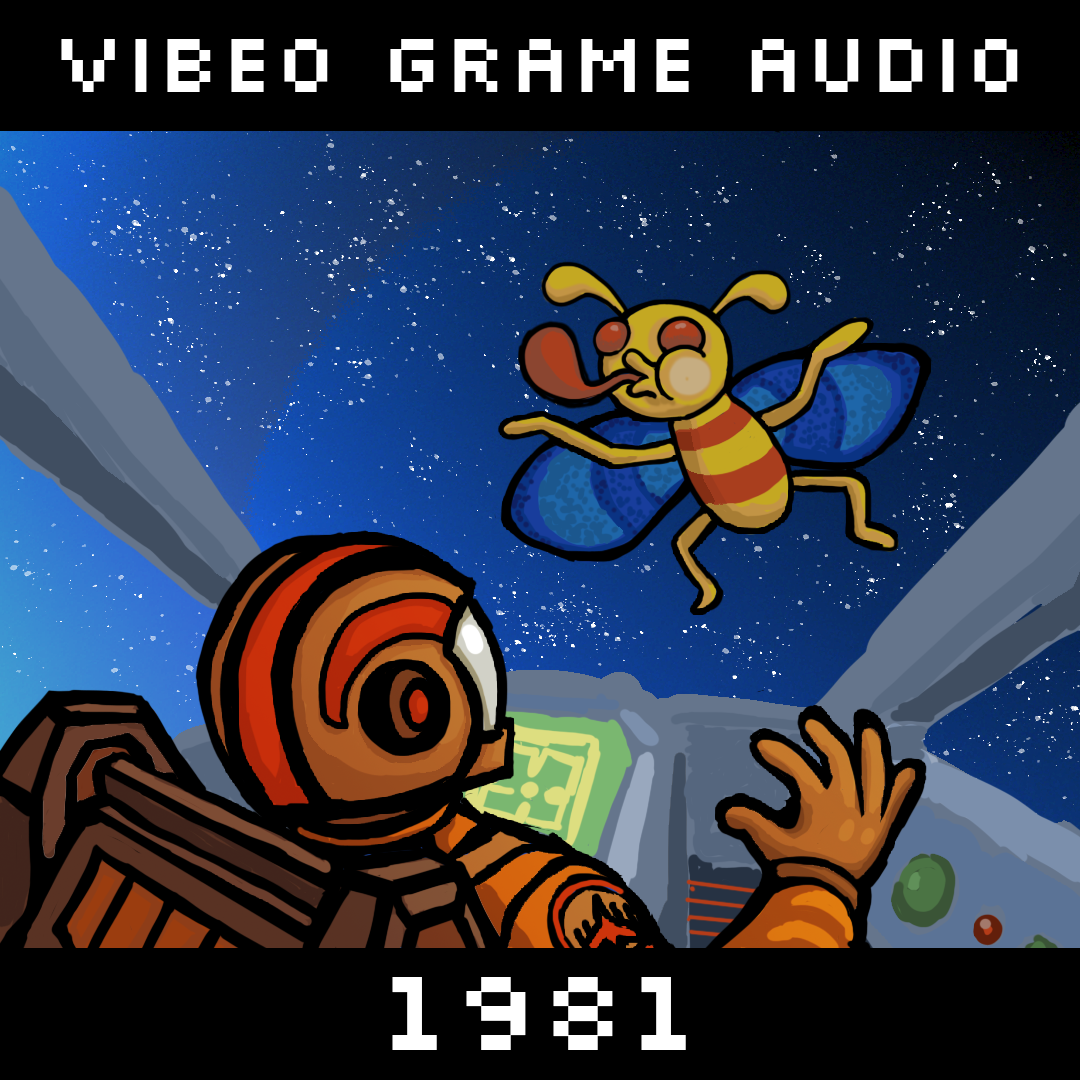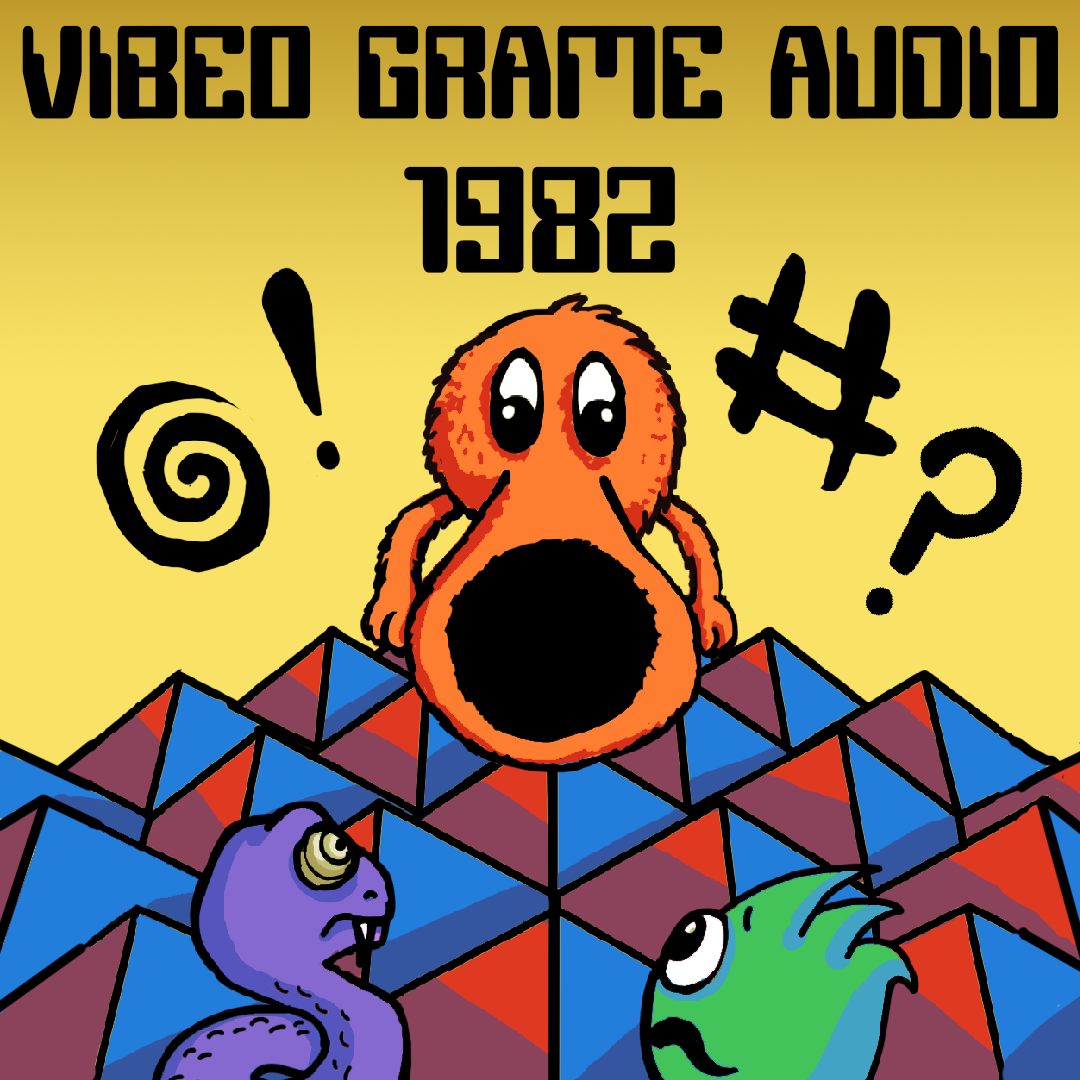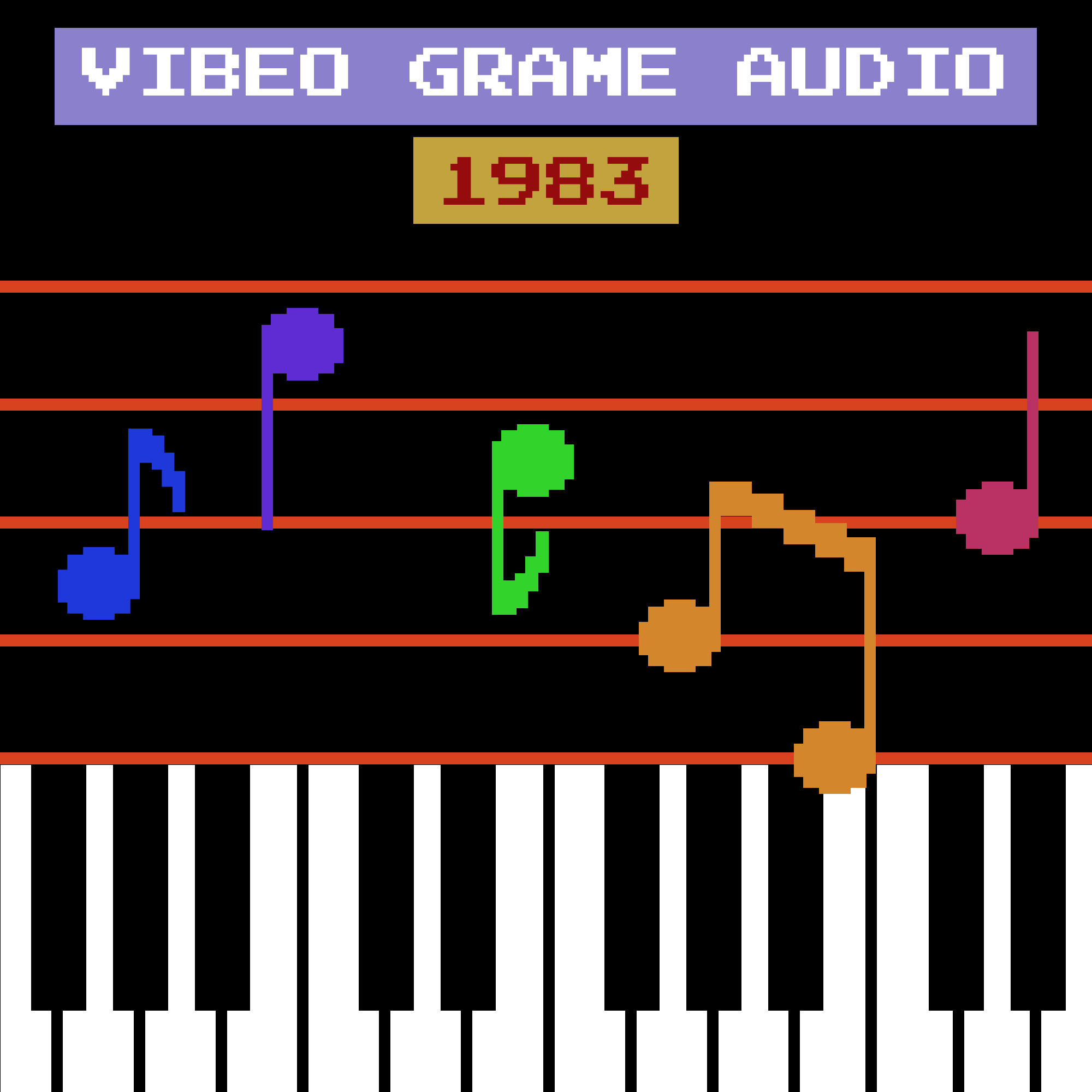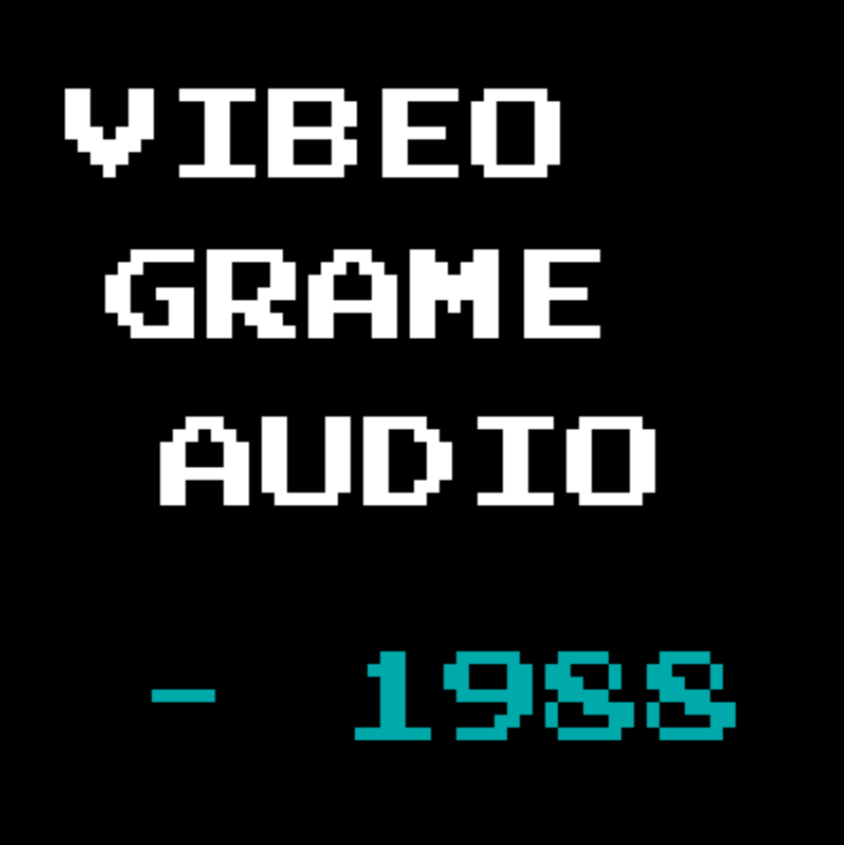You can be guaranteed that in any given year, there will be at least one really good video game soundtrack. But some years are full of them, so much so that it’s hard to pick a favorite among half a dozen or more. Other years, not so much. In the “down years,” there isn’t a lot to look forward to. The soundtracks aren’t always bad in any objective sense, but nothing seems to rise above the level of “competent.” The winner is all but guaranteed by virtue of being one of maybe two competitive entries, if you’re lucky. That’s just how life goes, I guess, but what makes this strange - strange enough I felt like wasting your time right now to tell you - is how the up and down years are coming in a predictable and alternating pattern. 1984, 1986, and 1988 were all “up years,” with multiple groundbreaking, beautiful, intricate, and kick-ass soundtracks that I genuinely love to listen to in my spare time. 1985 and 1987 were down years, and so is 1989. I’ve also cheated and looked ahead a bit. 1990 is an up year, 1991 is a down year, and 1992 is an up year. What does this mean? Nothing at all. Thanks for reading.
1989 is also something of a transitional year. Pure chiptune music still exists on the NES and with the newly-released Game Boy, but it’s slowly being phased out in favor of FM Synthesis, which you can now get in arcades, consoles, and even on PC. But this FM Synthesis isn’t yet capable of producing the incredible variety of sounds you’ll hear from the Super NES or Playstation, which have yet to arrive on the scene. That which does exist feels very limited, so that every PC or console’s chip sounds so similar they might as well all be using the same one. Sega Genesis music sounds much like PC-88 music, which sounds like Amiga music, which sounds like Sega games in the arcades, which sounds like the Ad-Lib chip. While there’s a lot of extra versatility to this simple FM synthesis compared to the old chiptune stuff, it’s not that large a step for mankind, and composers don’t seem to have gotten a handle on it the way they would in the early 90s.
There would be a third paragraph here if I found another thing to complain about for this year’s entries.
#10: Teenage Mutant Ninja Turtles
Composer: Jun Funahashi
Platform: Console (NES)
By no means are the Teenage Mutant Ninja Turtles completely irrelevant and forgotten. There are still movies and shows and games featuring the titular characters. But they were - and are - an 80s/90s phenomenon, a parody of comics that turned into its own universe that inspired parodies of itself, holding on to success by way of Gen Xers and Millennial guys well into their 40s now who idolized them as kids, obsessed with ninjas and martial arts heroics. This game for the NES was simply the first of many TMNT games and it was an immediate commercial success, being one of the best selling games of all time for the system. But it’s mostly faded into obscurity now, being known only for its skull-crushing difficulty and wonky controls, having been eviscerated by the Angry Video Game Nerd back in 2006 (warning: video has one or two swears). I’ve yet to say anything about its soundtrack because there isn’t all that much to say. It’s pretty boilerplate 80s hard-rockin’ chiptune music common to most action games of the time, so while it’s competently written it doesn’t do anything remarkable or memorable. But in 1989, you don’t have to be remarkable or memorable to be top 10, you only have to be competent.
Watch a playthrough of Teenage Mutant Ninja Turtles
Listen to the OST
#9: DuckTales
Composer: Hiroshige Tonomura
Platform: Console (NES)
Licensed games based on TV shows or movies tend to get a bad rap, and much of the time they deserve it. DuckTales stands out as one of the few good examples of licensed content in the 80s. But unless you’re a retro games enthusiast or one of the olds you probably only know one thing about this game: there is a level on the moon, and it has the most kick-ass music in the whole game. Heck, it’s one of the best single tracks for any NES game ever made!
I really wish I could put this soundtrack higher, as the theme tune for the Moon level is that good. However, I must regrettably inform you that it is the only good track in the game. The rest of the soundtrack is, at best, mediocre. I’ve tried to give this one a chance, but there’s nothing here outside of that one good track.
Watch a playthrough of DuckTales, here in Duckberg
Listen to the OST, it’s a Duckblur
#8: Hard Drivin’
Composer: Don Diekneite
Platform: Arcades
We’re now in an era where everyone is trying to pack as much music into their game as possible. The quality of that soundtrack is likely to be similar to the quality of the sound design. In other words, a game with great sound effects will probably also have great music. So if most games feature lots of music, any game which has Top-Ten-Worthy sound design also has Top-Ten-Worthy tunes. To get here on sound effects alone, a game needs to have little to no music. It’s been a while since I’ve been able to put a game up here like this, and it probably won’t happen after 1989 for a long time, if at all. There, that’s my justification for my decisions. I will not be taking questions at this time.
There are some musical stingers in Hard Drivin’, but this one is here for the sound effects all the way. At a time when most games are still using simple beeps for sound, it’s refreshing to hear anything approaching realistic noise, even if it’s constantly blaring throughout the whole game. You can even hear the mooing of a cow as it protests your attempts to run it over. (No animals were harmed in the playing of this video game.)
#7: Prince of Persia
Composer: Francis Mechner
Platform: PC (Apple II, then ported many times)
I remember seeing ads for this game everywhere in other old games I played as a little kid. That cover art is burned into my brain, a core memory of my formative years. Did I ever play Prince of Persia? No. Didn’t seem like my thing. There, that’s just another exciting chapter in the story of my life.
Prince of Persia is another game that makes the list on its sound design alone. There are versions of this game with music, some of which probably came out in 1989, but none of them really stand out. In the original Apple II version there wasn’t really any music to speak of at all. There’s a lot of ports and I don’t feel like chasing them all down to double check I haven’t forgotten some hidden gem of a soundtrack. That sounds like a fun task for you if you feel so inclined. I believe in you.
Something I’ve noticed about the hi-def sounds of the 80s (and early 90s), and something you might also notice, is that their high quality very much does not fit with the rest of the game. This is no one’s fault but the technology. From the graphics alone you might expect bleeps and bloops, but here you get clashing and clanging on metal and stone, and some very nice clashing at that. It’s like if you dropped a pebble on the ground and it made the sound of a bowling ball landing on a glass table and shattering it. You just don’t expect so much from so little. This isn’t a bad thing and I’m not penalizing these old games for it, but it is odd and I felt I could fill up my word quota by telling you my feelings on the phenomenon.
#6. Ys III: Wanderers from Ys
Composer: Mieko Ishikawa
Platform: PC (NEC-PC)
Every time I listen to this soundtrack, I feel more strongly that it’s the weakest of the Ys series so far. Luckily, the weakest Ys soundtrack is still better than much of what passes for hardcore video game music in the 80s. It’s more of what you loved from the first two games, so that means everything is cranked up to 11 from the word “go.” I just don’t really care for the way Ys III in particular goes about doing that. There’s not nearly as much variety as you get from the first two games. Every track feels the same, and they sound like the waveform is just a rectangle. If you listen to a track or two in isolation you’ll probably like it just fine, but listening to the whole thing in one sitting is going to be tiring for your ears.
Watch a playthrough of Ys III: Wanderers from Ys
Listen to the OST
#5. Super Mario Land
Composer: Hirokazu Tanaka
Platform: Console (Game Boy)
The Game Boy was not the first ever handheld video game system, but it was the first that was - according to serious historical analysis - “good.” This was despite its horrid technical specs. Handheld systems always tend to lag far behind consoles of the same generation. But while the Game Boy belonged to the fourth generation, even third-gen machines outclassed it. For graphics, there were just four shades of olive green. Musically, it was even less powerful than the NES, to the point that much of the Game Boy’s catalog is high-pitched, out of tune, and irritating. The soundtracks which do make it here are all the more impressive considering the limitations the composers had to work with.
Of all the soundtracks in this year’s list, Super Mario Land’s is definitely the most well-known. If you were around at all in the early 90s, you probably heard it coming from Game Boys all over the place. And it’s the first major Mario release that wasn’t composed by the god of video game music, Koji Kondo. Let’s see who this unknown hotshot is...
Oh, it’s Hip Tanaka again. At this point I’m not surprised he knocked this one out of the park. Every level theme in Super Mario Land is instantly memorable, recognizable, and fun. The “underground” theme is so recognizable, in fact, that it consistently gets mistaken for a bit from Family Guy. No joke. Almost all the comments on the YouTube video are referencing it. The bit they are talking about isn’t even lifted from this game. They’re very similar, yes, but this game came out over a decade earlier and it’s almost certain that Family Guy was not inspired by it. Just a wild coincidence, I guess.
#4: Final Fantasy Legend
Composer: Nobuo Uematsu
Platform: Console (Game Boy)
Despite the name, this isn’t really a Final Fantasy game and does not technically belong to the Final Fantasy canon. That’s what they tell me, and I just report the facts. Even by 1989, with two whole installments, Final Fantasy was already known as a disjointed series that reinvented itself with each new game. Who was to say the Final Fantasy Legend wasn’t another one of these reinventions? What fools we were! They tricked us! We were bamboozled! This game not only split from its namesake immediately but eventually rebranded entirely as the SaGa series.
The only thing connecting The Final Fantasy Legend to its NES counterpart was its composer: Nobuo Uematsu. Again. He’s even more constrained by the Game Boy’s limitations than he was for his first few games, yet somehow he makes music with this old machine like it’s easy. This man can do no wrong.
Watch a playthrough of The Final Fantasy Legend
Listen to the OST
#3: Shadow of the Beast
Composer: David Whittaker
Platform: PC (Amiga)
I really wish I could put more Amiga games on here. With the first Amiga model introduced in 1985, it quickly became the most advanced home computer for graphics and audio. By this year, 1989, it’s capable of producing games more advanced than anything that exist anywhere else, with the possible exception of the arcades. The Amiga’s capabilities made it very useful for artists and musicians, making it a precursor to the modern audiovisual editors we use today. But to get on the list, a soundtrack needs to be more than merely ahead of the rest on technical specs. Shadow of the Beast has easily the most advanced audio hardware of any other game on the list, probably more than any other game up to this point. That much is impressive. But that’s all there is.
The most interesting part of this game, to me at least, is how Shadow of the Beast feels very ahead of its time. Everything about this game - but especially its music - calls forward to the kinds of games we’re going to see and hear in the 90s. The soundfont does not belong with the chiptunes and early FM synthesis we’ve heard to this point. Stylistically, the music avoids the all-too-common action movie rock, favoring an atmospheric and dark aesthetic which you might recognize more in titles like Myst and Doom. Ultimately this game ends up in the “forgotten gems” pile at best, its soundtrack avoiding all the pitfalls of generic 80s games and instead falling into all the pitfalls of the generic 90s ones. However, it does serve as perhaps the clearest example of a transition point, a game that signals that the old way is dying and a new one is taking its place.
#2: Castlevania III: Dracula’s Curse
Composer: Hidenori Maezawa, Yoshinori Sasaki, Jun Funahashi, Yukie Morimoto
Platform: Console (Famicom/NES)
Some important context for you to fully appreciate this game’s soundtrack: there are two NES’s. Over here in the West, it was the Nintento Entertainment System released in 1985. But that NES was just a version of the already existing Famicom, released only in Japan in 1983 and running almost exactly the same hardware. There were some key differences, such as the Famicom’s allowing for microphone input, a feature that parents everywhere enjoyed as their children screamed into their Nintendo systems. But more importantly for the world of game music, the Famicom’s audio chip allowed for more sound channels and a greater variety of effects on the waveforms used.
Not every Famicom game took advantage of these features. However, any game which did so would have to have two versions of the soundtrack: one for the Famicom, and one pared down for the more limited features of the NES. This means that we in the West are missing out on some great music simply because the stuff that was originally written wouldn’t work on our machines. Castlevania III: Dracula’s Curse was one such game. It’s not terrible on the NES or anything, but just listen to the opening track for the Famicom and you’ll see what I mean.
You might already be familiar with this level music from Castlevania III, as it’s been remixed to death. The series still has one foot firmly planted in the 80s action-thriller music, but starting with this entry we’ll hear more of the gothic horror vibes that really define the modern Castlevania. For instance, the Clockwork track pulls from Baroque music, but especially from fugues. Another favorite of mine is Rising, which frequently shifts meters and varies its percussion to give a sense of both forward motion and unease. If you’re familiar with Super Castlevania on the SNES, then you can see how Dracula’s Curse represents the transition from the old style into the 90s.
Watch a playthrough of Castlevania III: Dracula’s Curse
Listen to the OST
#1: Mother
Composer: Keiichi Suzuki, Hirokazu Tanaka
Platform: Console (NES)
To be honest, I knew I was putting Mother in the top slot long before I even started making this list. It’s one of the greatest soundtracks ever made for the NES, let alone for video games in general. Too bad it didn’t make it out here to the West for years. For the longest time, your only hope of playing this game was either learning Japanese or finding the translated but unreleased ROM floating around the internet somewhere. Until 2015, that is, when Nintendo decided to go through with the localization after all and put it on the Virtual Console. Isn’t history interesting.
There were probably many little reasons that Nintendo got cold feet as to localization in 1989, and one of those could easily have been the game’s offbeat style. Mother, also known as EarthBound Zero and EarthBound Beginnings, is a weird little game. It’s an RPG, but instead of being set in a medieval fantasy world or sci-fi universe, it was set in the present day. You play as Ninten, a small child who has psychic powers, as you set out alone to investigate what turns out to be aliens trying to invade earth. Along the way you befriend other weird kids and battle against wacky monsters and visit strange new worlds, none of which takes itself all that seriously. Though the gameplay is a bit dated (and I’m being very generous here), Mother was extremely influential, if only because it brought us the more well-known EarthBound on the SNES, which went on to inspire literally every single indie RPG that has ever been made. YIIK? EarthBound but problematic. Undertale? EarthBound for furries. Lisa, the Painful? EarthBound for edgelords.
It should not surprise you that “Hip” Tanaka is a part of this one, right? He’s joined by Keiichi Suzuki, whose only contributions to video games are this game and its sequel, but boy did the pair nail it on this one. The soundtrack is wild. It runs the gamut from traditional video game-y chiptunes all the way to weird alien ambience. Then there are the blatant pop tunes, such as Pollyanna and Bein’ Friends, both of which got actual live recordings. I think my favorite version of Pollyanna is the 8 bit big band’s R&B take, which you will watch because it is amazing. What else? Let’s see, there’s the Humoresque of a Little Dog, which isn’t particularly groundbreaking as video game tunes go but I love it. If you want to understand how this game directly inspired things like Undertale, then just listen to tracks like Magicant and Snowman. I should stop here. If I wanted to shout out particular tracks I thought were good, I would just be listing the whole soundtrack. There’s a reason this is number one, and I don’t think there’s any competition.


















